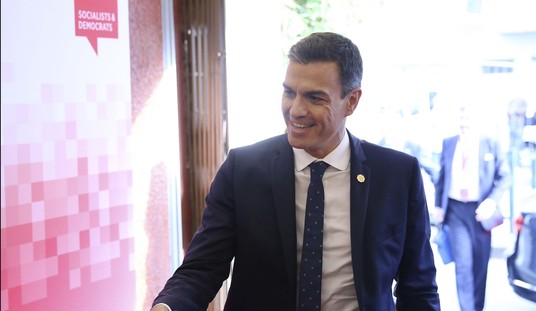How rich is Donald Trump? That question has dogged the campaign for months, as analysts insist that the presumptive Republican presidential nominee exaggerates his wealth. Trump has refused to release his tax returns until after the IRS concludes an audit, but his campaign announced last night that he has filed a new financial disclosure report with the FEC that puts his net worth at more than $10 billion. His valuation has gone higher than declared in his initial FEC disclosure last July, according to the campaign:
Trump’s campaign also said the real estate mogul’s net worth remains “in excess of $10 billion dollars” — and has actually increased since since his first financial disclosure form in July.
Though the 104-page report won’t be made public until its reviewed by the commission, Trump’s campaign said the report shows:
• The former Atlantic City casino magnate earned $557 million income in 2015, which does not include dividends, interest, capital gains, rents, and royalties.
• Trump — who owns three New Jersey golf courses — saw his business revenues grew by $190 million.
• He has “tremendous cash flow.”
Forbes has been skeptical of Trump’s claims for years, in part because they say he’s lied to them in the past about his net worth. The magazine has rated his net worth closer to $4.5 billion, based on a long history of tracking his public records and disclosures — a history that has also long been contentious:
Forbes has been estimating The Donald’s fortune for 33 years. In September we spoke to more than 80 sources to arrive at a $4.5 billion net worth estimate for Trump. He claimed he was worth more than double that. Forbes found that Trump consistently exaggerates the value of his properties, but he also gets a much higher number because of the amorphous multi-billion-dollar value he likes to assign to the “Trump brand.” Rather than include a theoretical value of personal goodwill, Forbes captures Trump’s brand through the deals he’s able to make using his personal cachet and the estimated market value of the company he uses to license the Trump name to the world.
Still, he told Forbes magazine editor Randall Lane, “You’re gonna look bad” while offering little proof of the $10 billion-plus he fancied besides a few clarifications on debt loads and building square footage. The amount of cash he claimed to have — which was more than double what he had proven to us the year before — was substantiated only by a piece of paper with the “new” number scribbled on it by hand. And admitting that he lied to Forbes when the overleveraged businessman dropped from The Forbes 400 in the early 1990s, despite his protests at the time, hardly breeds trust.
NJ.com’s Brent Johnson noted the dispute over the worth of his “personal brand,” which Trump puts at $3.3 billion. Forbes considers it worth $125 million. (YMMV.) That would, however, only account for about half of the difference in valuations, and is not the only dispute between Trump and those who report on his wealth. The Wall Street Journal also suspects that his “tremendous cash flow” isn’t as yuuuge as Trump claims:
When his campaign began last summer, a financial disclosure Mr. Trump filed said he had between about $78 million and $232 million in cash and relatively liquid assets such as stocks and bonds.
That would go fast if Mr. Trump spent an amount close to the $721 million President Barack Obama spent in 2012 up to Election Day, or the $449 million Mitt Romney spent in the same stretch.
This would leave hundreds of millions to be made up. And Mr. Trump’s businesses don’t produce that much in a year, a Wall Street Journal analysis shows. His 2016 pretax income, according to the analysis, is likely to be about $160 million.
The result is if Mr. Trump stuck with self-financing, he likely would have faced difficult decisions over whether to sell some of his properties or borrow more money against them.
Perhaps this is all true, but it’s also a moot point. Trump has already decided that he will do traditional fundraising and fund his campaign through big-ticket donors. That makes the precise valuation of his net worth and his income much less relevant. All of this mattered when Trump kept bragging that he would self-fund as a strategic complication of his candidacy. Now? Meh.
Either way, Trump’s voters will see him as wildly successful, and they won’t care much whether he made $557 million in income last year, or just had to scrape by on $160 million. Other voters who begrudge that kind of wealth (and/or Trump’s ostentatious display of it) will not be less put off by a lower valuation, either. The rest of the electorate will be more concerned about their own economic circumstances than either Trump’s or Hillary Clinton’s except to the extent that either or both are based on fraud and corruption.








Join the conversation as a VIP Member